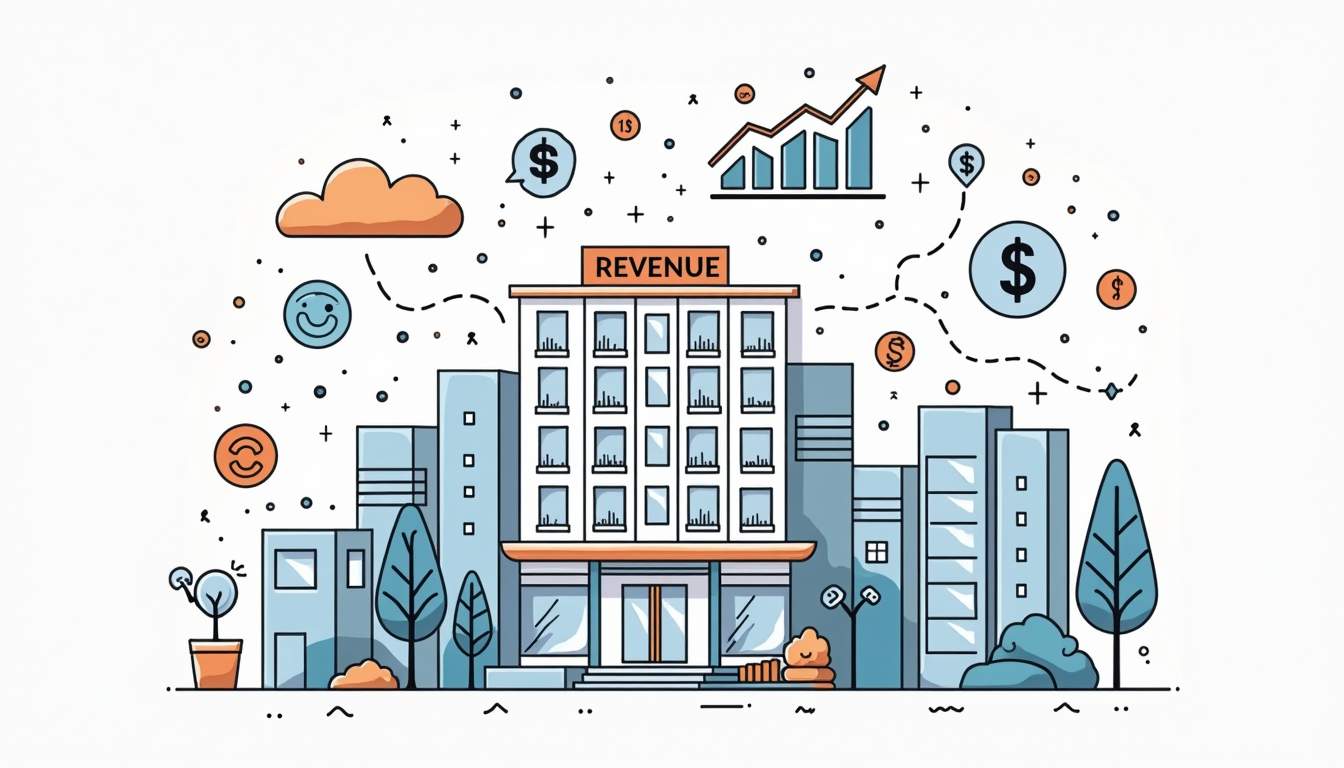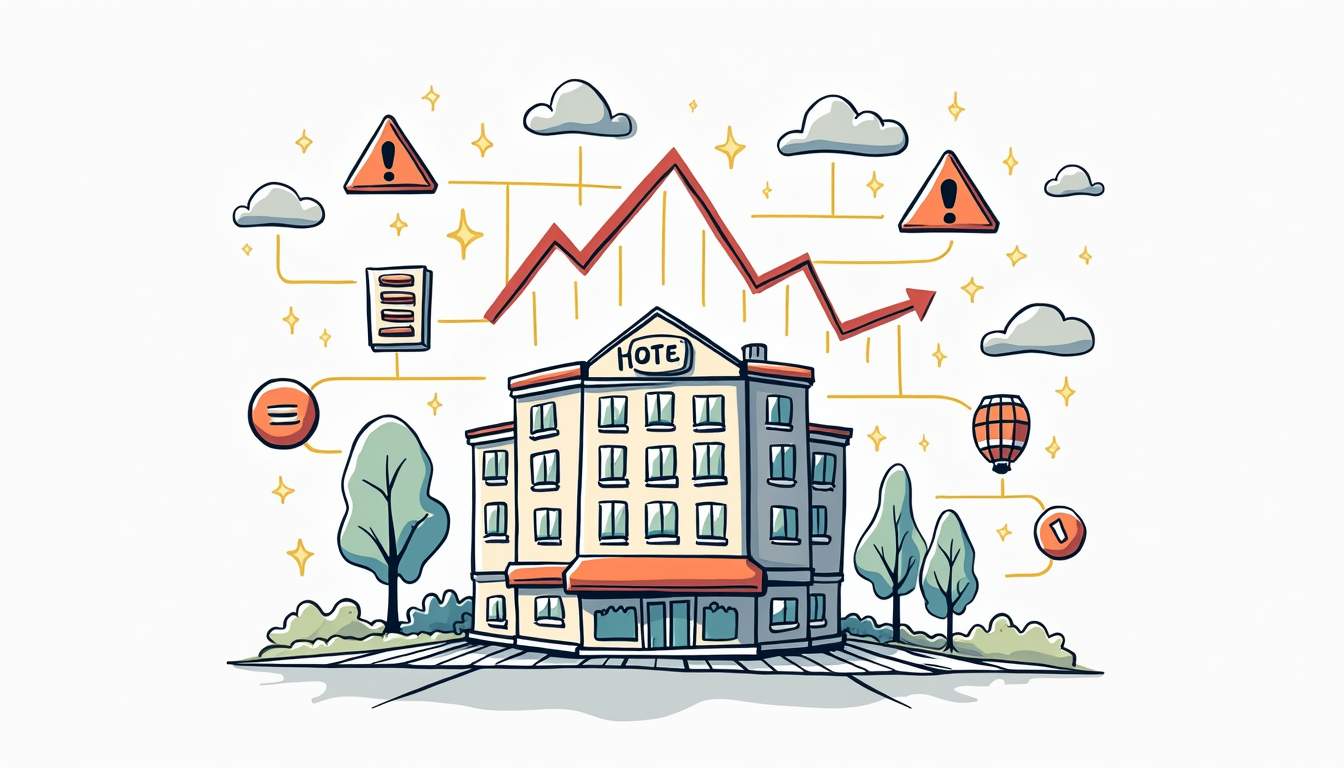Introduction to Revenue Optimization
Revenue optimization refers to the strategic process of maximizing a hotel’s revenue through various techniques and methodologies. This concept is pivotal in the hospitality industry, where the ability to predict demand, manage pricing, and enhance customer satisfaction can significantly impact profitability. Revenue optimization is not merely about increasing prices; it involves a comprehensive understanding of market dynamics, customer behavior, and operational efficiency.
In the context of hotel revenue management, revenue optimization encompasses a range of practices aimed at ensuring that a hotel sells the right room to the right customer at the right time for the right price. This delicate balancing act requires sophisticated tools and analytics, as well as a keen understanding of both the macroeconomic factors affecting the travel industry and the micro-level details of individual hotel operations.
As the hospitality landscape continues to evolve, particularly with the advent of technology and data analytics, revenue optimization strategies have become increasingly complex and nuanced. Hotels are now leveraging advanced algorithms, machine learning, and big data to inform their pricing strategies, ensuring that they remain competitive in an ever-changing market.
The Importance of Revenue Management in Hotels
Revenue management is crucial for hotels as it directly influences their financial performance. By optimizing pricing and inventory, hotels can enhance their revenue streams and improve overall profitability. Effective revenue management allows hotels to anticipate market trends and adjust their strategies accordingly, ensuring they capitalize on peak demand periods while minimizing losses during slower seasons.

Moreover, revenue management helps hotels to segment their customer base effectively. By understanding the different needs and behaviors of various customer segments, hotels can tailor their offerings and pricing strategies to meet specific demands. This segmentation not only improves customer satisfaction but also enhances the hotel’s ability to maximize revenue from each segment.
In addition, revenue management fosters a culture of data-driven decision-making within hotel operations. By relying on analytics and performance metrics, hotel managers can make informed choices that align with their revenue optimization goals. This shift towards data-centric strategies is essential in today’s competitive environment, where even minor adjustments in pricing or inventory management can lead to significant changes in revenue.
Key Components of Hotel Revenue Management
1. Demand Forecasting
Demand forecasting is the cornerstone of effective revenue management. It involves predicting future customer demand based on historical data, market trends, and external factors such as economic conditions or local events. Accurate demand forecasting enables hotels to make informed decisions about pricing and inventory allocation, ensuring they are prepared to meet customer needs during peak periods.
Hotels utilize various forecasting methods, including quantitative models that analyze past booking patterns and qualitative approaches that incorporate insights from market research. By combining these methods, hotels can create a more comprehensive view of expected demand, allowing them to adjust their strategies proactively.
Furthermore, demand forecasting is not a one-time activity; it requires continuous monitoring and adjustment. As market conditions change, hotels must be agile in their forecasting efforts, adapting their strategies to reflect new data and insights. This iterative process is essential for maintaining a competitive edge in the hospitality industry.
2. Pricing Strategies
Pricing strategies are a critical element of revenue management, as they directly impact a hotel’s ability to attract customers and maximize revenue. Hotels employ various pricing strategies, including dynamic pricing, value-based pricing, and promotional pricing, each tailored to specific market conditions and customer segments.
Dynamic pricing, for instance, allows hotels to adjust their rates in real-time based on demand fluctuations. This approach requires sophisticated technology and data analytics to ensure that prices are competitive while still maximizing revenue. On the other hand, value-based pricing focuses on the perceived value of a hotel’s offerings, allowing hotels to set prices based on customer willingness to pay rather than solely on market rates.
Promotional pricing strategies, such as discounts or package deals, can also play a significant role in driving bookings during low-demand periods. By strategically implementing promotions, hotels can attract price-sensitive customers and fill rooms that might otherwise remain vacant. However, it is crucial to balance promotional efforts with overall revenue goals to avoid devaluing the brand.
3. Inventory Management
Effective inventory management is essential for optimizing hotel revenue. This process involves managing room availability and allocation to ensure that the right number of rooms is sold at the right price. Inventory management strategies can significantly influence a hotel’s revenue performance, particularly during high-demand periods.
Hotels must carefully monitor their inventory levels and adjust their distribution strategies across various channels, including direct bookings, online travel agencies (OTAs), and global distribution systems (GDS). By optimizing inventory distribution, hotels can maximize their visibility and reach a broader audience, ultimately driving more bookings.
Additionally, inventory management requires a keen understanding of customer behavior and booking patterns. By analyzing data on when and how customers book their stays, hotels can make informed decisions about room allocation and pricing, ensuring they capitalize on demand while minimizing the risk of overbooking or underbooking.
4. Performance Metrics
To effectively manage revenue, hotels must track and analyze various performance metrics. Key performance indicators (KPIs) such as revenue per available room (RevPAR), average daily rate (ADR), and occupancy rate provide valuable insights into a hotel’s financial performance and operational efficiency. By monitoring these metrics, hotel managers can identify trends, assess the effectiveness of their revenue strategies, and make data-driven decisions to enhance profitability.
RevPAR, for instance, combines both occupancy and pricing data to provide a comprehensive view of a hotel’s revenue performance. By analyzing RevPAR trends over time, hotels can identify peak periods, assess the impact of pricing strategies, and make informed decisions about inventory management. Similarly, ADR helps hotels understand the average revenue generated per room sold, allowing them to evaluate their pricing strategies and make necessary adjustments.
Occupancy rate, on the other hand, measures the percentage of available rooms that are sold during a specific period. This metric is crucial for understanding demand levels and assessing the effectiveness of marketing and sales efforts. By analyzing occupancy trends, hotels can identify opportunities for improvement and develop targeted strategies to enhance revenue.
Challenges in Hotel Revenue Management
Despite its importance, hotel revenue management is not without challenges. The dynamic nature of the hospitality industry, coupled with external factors such as economic fluctuations and changing consumer preferences, can complicate revenue optimization efforts. Hotels must navigate these challenges while remaining agile and responsive to market conditions.

One significant challenge is the increasing competition from alternative accommodations, such as vacation rentals and peer-to-peer lodging platforms. These alternatives often offer competitive pricing and unique experiences, which can impact traditional hotels’ ability to attract customers. To remain competitive, hotels must continuously innovate their offerings and enhance their value propositions.
Additionally, the reliance on technology and data analytics can pose challenges for hotels that may lack the necessary resources or expertise. Implementing advanced revenue management systems requires significant investment and training, which can be a barrier for smaller hotels or those with limited budgets. Overcoming these challenges is essential for hotels to effectively optimize their revenue and maintain a competitive edge in the market.
The Future of Hotel Revenue Management
The future of hotel revenue management is poised for transformation, driven by advancements in technology and changing consumer behaviors. As hotels increasingly adopt data-driven strategies, the role of artificial intelligence (AI) and machine learning in revenue optimization is expected to grow significantly. These technologies can analyze vast amounts of data in real-time, enabling hotels to make more accurate predictions and optimize pricing strategies more effectively.
Moreover, the integration of customer relationship management (CRM) systems with revenue management tools will allow hotels to gain deeper insights into customer preferences and behaviors. By leveraging this information, hotels can create personalized offerings and targeted marketing campaigns that resonate with their audience, ultimately driving bookings and enhancing customer loyalty.
As sustainability and social responsibility become increasingly important to consumers, hotels will also need to consider how their revenue management strategies align with these values. Implementing eco-friendly practices and promoting sustainable tourism can enhance a hotel’s brand image and attract environmentally conscious travelers, further contributing to revenue optimization efforts.
Conclusion
In conclusion, revenue optimization is a critical aspect of hotel revenue management that requires a multifaceted approach. By understanding the key components of revenue management, including demand forecasting, pricing strategies, inventory management, and performance metrics, hotels can enhance their revenue streams and improve overall profitability. Despite the challenges posed by a dynamic market and evolving consumer preferences, the future of hotel revenue management holds great promise, driven by technological advancements and a focus on customer-centric strategies.

As the hospitality industry continues to evolve, hotels that embrace data-driven decision-making and innovative revenue optimization strategies will be well-positioned to thrive in an increasingly competitive landscape. By prioritizing revenue management as a core component of their operations, hotels can maximize their revenue potential and achieve long-term success.
Discover How Prosper Hotels Can Elevate Your Revenue Management
Ready to take your hotel’s revenue to new heights? At Prosper Hotels, we specialize in transforming your revenue management strategies with our expertise. From leveraging cutting-edge digital marketing to optimizing your group housing services, our team is dedicated to maximizing your hotel’s performance. Embrace the future of hotel revenue management with Prosper Hotels and witness your revenue soar and your team’s success flourish. Learn More about how we can help you achieve your hotel’s maximum potential.


 Drive More Hotel Revenue
Through Untapped Strategies
Drive More Hotel Revenue
Through Untapped Strategies
